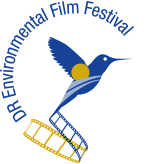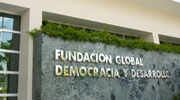 Tracking Marine and Coastal Ecosystems with Google Ocean
Tracking Marine and Coastal Ecosystems with Google Ocean
Friday, September 12th
10 am to 12 pm- Biblioteca Infantil y Juvenil República Dominicana
4pm to 6pm- FUNGLODE
How would you like to work with Google? Now is your chance to generate content and upload all sorts of information onto the web, including photos, videos as well as audio and text about your country’s marine resources. You can share this information with millions of users around the world through Google Earth and Google Maps.
In this workshop, we will be talking about how you can collaborate with “Explore the Ocean Layer,” launched in 2009 by Google and the Sylvia Earle Alliance. This layer, apart from showing all the content generated by users like you, serves as an educational platform for others to learn more about ecosystems and marine life, oceans and the atmosphere, science and exploration, marine protected areas and the human connection to the ocean.
Panelists:
Charlotte Vick, Content Manager for Google Earth’s “Explore the Ocean” layer
Maria Montoreano, Content Curator for Google Earth’s “Explore the Ocean” layer
 Marketing and Distribution: Uncovering your Films’ Potential
Marketing and Distribution: Uncovering your Films’ Potential
Saturday, September 13th 2014 from 4pm to 6pm
Santo Domingo, FUNGLODE
Every year, thousands of filmmakers compete with one another to make it into the leading film festivals around the planet and achieve the recognition they yearn for. Although many do not succeed in this endeavor, some of these filmmakers still manage to go on and turn their film projects into national or event international success stories. How is this so? To begin with, film distribution strategies have changed dramatically in today’s fast paced market. Often overlooked are the low hanging fruits of film marketing and distribution. Social media is one of them. Indeed, creating a social media campaign is free and a vital starting point for the advertisement of a film project. Building a fan base with every festival appearance and assessing the pros and cons of Do It Yourself self-distribution are also effective options. Background work is also important. This includes researching and identifying the target audience of the project, finding partners and exploring creative fundraising opportunities. From there, further fine tuning can be achieved by using lesser-known but still effective platforms to broaden the reach of the social media strategy of the project, by learning how & where to set up community screenings, and by assessing the pros & cons of new digital outlets. So if you’re new to social media marketing and distribution or even looking for new ideas to improve your existing campaigns then this workshop is for you!
Panelists:
Suzan Beraza, Documentary Filmmaker
Suzanne Harle, Founder and Executive Director of Green Planet Films
 Transforming Advocacy Through Film
Transforming Advocacy Through Film
Sunday, September 14th 2014 from 4 pm- 6 pm
Santo Domingo, FUNGLODE
Films and new media are essential educational and policy tools in the struggle to protect the environment. For this reason, the DR Environmental Film Festival seeks to motivate emerging filmmakers in the country to adopt these new ideas and concepts within their productions, encouraging the use of film as a weapon to create stories that raise awareness and have an impact on the environment. Powerful images and films can capture our attention and alert millions to the value of protecting the natural world. However, without effective storytelling and a coherent script (the blueprint of the film) these films will fail to communicate their important messages. So what makes a film engaging for an audience? And how do we ensure the message of the film does not get lost in the process of filmmaking?
Panelists:
Allison Argo, Director of Parrot Confidential
Fernando Báez, Founder and President of Unicorn Films and Grupo Único
Stefanie Brendl, Executive Producer of Extinction Soup
Ric O’Barry, Founder and Campaign Director of the Dolphin Project



